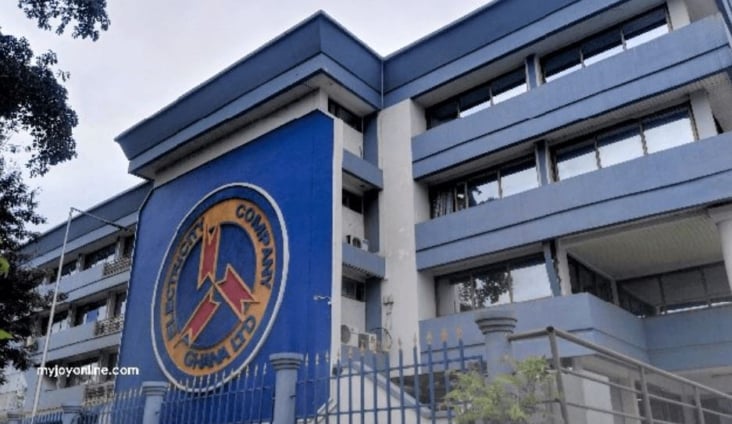The Electricity Company of Ghana (ECG) is embroiled in controversy over its financial management practices, specifically its maintenance of a staggering 84 bank accounts across 20 different banks. This practice flies in the face of directives issued under Ghana’s International Monetary Fund (IMF)-supported program, which mandates the consolidation of all revenue collections and disbursements into a single Treasury Single Account (TSA). This directive is a cornerstone of the IMF program, designed to enhance transparency, streamline operations, and improve accountability in the management of public funds. The revelation of ECG’s fragmented banking system raises significant concerns about the company’s adherence to these crucial financial guidelines and its commitment to responsible fiscal management. An independent audit conducted by PricewaterhouseCoopers (PwC) brought this issue to light, highlighting the discrepancy between ECG’s practices and the IMF’s stipulations. The audit report explicitly states that this “scattered approach to banking” directly contravenes the directive for centralized financial operations. The implications of this non-compliance are far-reaching, potentially undermining the efficacy of the IMF program and jeopardizing the stability of Ghana’s energy sector.
PwC’s audit report offers a practical solution to rectify this issue, recommending that ECG consolidate its banking operations by partnering with a single bank possessing a comprehensive nationwide branch network. This strategic move would eliminate the need for multiple accounts, thereby simplifying financial processes and enhancing transparency in revenue and disbursement management. By centralizing transactions through a single account, ECG can improve oversight, reduce administrative complexities, and minimize the risk of financial mismanagement. Furthermore, this consolidation would facilitate easier tracking of funds, enabling more efficient monitoring and reporting of financial activities. This enhanced transparency would not only satisfy the IMF’s requirements but also build public trust and confidence in ECG’s financial stewardship. The recommendation aligns with best practices in financial management, promoting efficiency, accountability, and sound fiscal governance within the organization.
Beyond the issue of multiple bank accounts, the PwC audit also uncovered serious concerns regarding ECG’s payment practices, particularly its failure to make timely payments to Independent Power Producers (IPPs) and regulatory bodies. The Cash Waterfall Mechanism (CWM) guidelines stipulate that ECG must remit payments by the 22nd of each month. However, the audit revealed that ECG has consistently missed these deadlines, creating financial strain within the energy sector and jeopardizing the smooth operation of Ghana’s power distribution system. These delayed payments have cascading effects, impacting the financial viability of IPPs and hindering their ability to invest in infrastructure and maintain operations. Furthermore, the failure to meet payment obligations to regulatory bodies undermines the authority and effectiveness of these institutions, potentially compromising their ability to oversee and regulate the energy sector effectively.
The untimely payments to IPPs and regulatory bodies create a ripple effect of negative consequences throughout Ghana’s energy sector. Delays in payments disrupt the financial stability of IPPs, impacting their ability to meet operational costs, invest in maintenance, and ensure the continuous supply of power. This financial instability can lead to power outages, further destabilizing the energy sector and negatively impacting businesses and consumers. The breach of contractual obligations also damages the reputation and credibility of ECG, making it more difficult to attract investment and secure favorable terms in future agreements. The audit report warns of the potential for further destabilization of Ghana’s power distribution system if these payment issues are not addressed promptly and decisively.
The findings of the PwC audit underscore the urgent need for comprehensive reforms within ECG’s financial management practices. Aligning with the IMF directives is not merely a matter of compliance but a crucial step towards ensuring the efficient and transparent management of resources vital to Ghana’s energy sector. The current practices, characterized by fragmented banking and delayed payments, pose a significant threat to the stability and sustainability of the power distribution system. Addressing these issues requires a multifaceted approach, including implementing the recommendation to consolidate bank accounts, strengthening internal controls to ensure timely payments, and fostering a culture of financial accountability within the organization.
Ultimately, the responsibility lies with ECG’s management to take swift and decisive action to rectify these shortcomings. A commitment to implementing the recommendations outlined in the PwC audit report, coupled with a dedication to adhering to the IMF directives, is essential for restoring confidence in ECG’s financial management and ensuring the long-term stability of Ghana’s energy sector. Failure to address these issues will likely exacerbate the existing challenges, potentially leading to further disruptions in power supply, increased financial instability, and damage to Ghana’s economic development prospects. Therefore, prioritizing financial reform within ECG is not only a matter of good governance but a critical investment in the future of Ghana’s energy security and economic prosperity.


